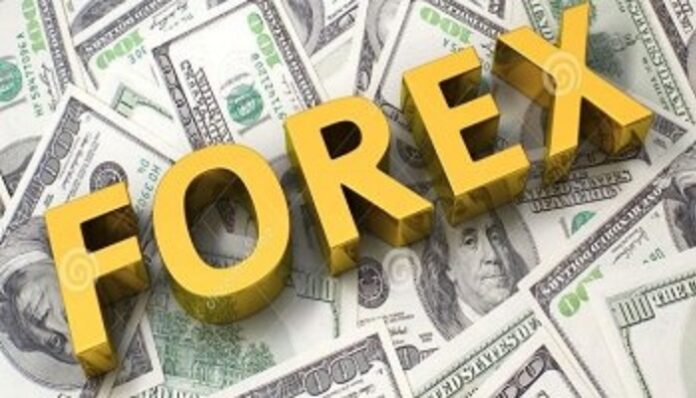Lagos, Aug. 10, 2023: Economic experts have stated the importance of clarity and transparency in Nigeria’s foreign exchange market , to stem exchange rate volatility and engender its stability to restore confidence to the economy.
They said this at the Arbiterz Conference with theme: “The Naira: Paths to Institutional Reforms and Accelerated Growth” on Thursday in Lagos.
Mr Bismarck Rewane, Chief Executive Officer (CEO), Financial Derivatives, however, stated that economic policy changes also required institutional reforms.
According to him, both policy changes and institutional reforms should happen simultaneously to lead to economic stability, growth and development.
“Export earnings dropped due to certain factors like price of oil, inefficient oil market structure among others.
“Currencies by nature are volatile and we must not be afraid of that as the right, consistent policies can address that.
“To restore confidence in the economy, there must be reforms in Nigerian National Petroleum Corporation Ltd (NNPCL), Central Bank of Nigeria (CBN), Federal Inland Revenue Service (FIRS) and others almost simultaneously.
“Businesses must also create models based on the country’s terms of trade, trade balance, interest rates and other variables for better economic projections and understanding,” he said.
Amb. Yonov Agah, Chief Trade Negotiator, Nigeria, said there were no silver bullets on how each country could achieve its economic objectives.
Agah said Nigeria must look at its peculiarities, design policies that could accommodate them such as creating the appropriate trade policy to drive exports as a means to earn more foreign exchange against rationing what was currently available.
“The country needs to recognise that its foreign exchange policies had implications for the entire trade system, the economy and global competitiveness.
“Best way forward is to try and get rid of the risks that reduce competitiveness, productivity and remove anti-export barriers.
“The conversation should be what do we do to get foreign exchange and where is the next dollar coming from?
“We must not loose in terms of export or import and must put trade at the front of the foreign exchange regime going forward, to bring in more foreign exchange against trying to save what we have,” he said.
Dr Ayo Teriba, CEO, Economic Associates, said Nigeria must optimise its national asset instead of selling them off, for their values to be more appreciated.
Teriba charged the Federal Government to reorganise NNPCL and the oil sector fragments into accountable independent functional entities.
“Nigeria suffers two sources of inflation and the solution to both is to stabilise the exchange rates by getting Foreign Direct Investment (FDI) into all sectors of the economy.
“The country’s foreign reserves must be buffered and legitimate items excluded from the import list should be reconsidered,” he said.
Dr Ari Aisen, International Monetary Fund(IMF) Mission Chief for Nigeria, said that access to foreign exchange must be transparent with the right macroeconomic policies in place, to reduce volatility.
Aisen noted that the country’s monetary and fiscal policies were too loose for exchange rate to stabilise and stressed the need to mop up excess Naira liquidity to stabilise the currency.
He also emphasised the need to put together social policies to the vulnerables in the society from high inflation figures.
“Nigeria must declare transparently its foreign exchange liabilities and assets as lack of transparency makes the terrain more difficult. The country must also not waste its foreign reserves.
“When all of these is done and in the middle term when confidence returns, the economy can enjoy a different environment with more stability and more competitiveness,” he said.
Mr Mansur Ahmed, Immediate Past President, Manufacturers Association of Nigeria (MAN), noted that availability, predictability and sustainability of foreign exchange was critical to enable manufacturing operations.
He said transparent, user friendly, stakeholders friendly economy was important for desired impact on export and trade.
“While the long term implications of exchange rate unification on manufacturing is welcome, there is need to look at what is happening in the short term to salvage the real sector,” he said.
Mr Charlie Robertson, Head, Macro Strategy, FIM Partners, said Nigeria’s new FX rate may be roughly 10 per cent cheap to its long-term average.
According to him, keeping it cheap or fairly valued, would help support growth and investment over the long-term.
“This could be done by adopting a currency regime where the rate moves with oil (like Angola) – or alternatively, adopting a crawling peg monthly devaluation (like Rwanda) – but with wide bands (like Poland in the late 1990s) to allow for oil price volatility,” he said.
Dr Abimbola Agboluaje, Founder, Arbiterz, noted that the Economic Intelligence Unit forecasted that by year end, Nigerian authorities may be forced to revert to heavy-handed intervention in managing the foreign exchange market to stem Naira depreciation.
He, however, noted that the private sector had a big role to play in preventing this foretold return to uncertainty, opacity, corruption and vanishing investment, factories and jobs.
He said the Naira Conference was a modest effort to broaden the dialogue on the economic objectives and principles that should shape Nigerian foreign exchange management.




